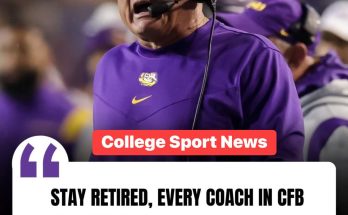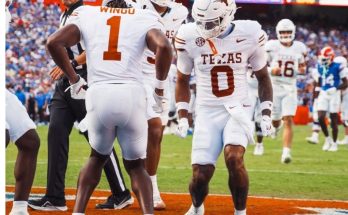
Historic Collapse: Texas Longhorns Become First Preseason No. 1 in Over a Decade to Drop Out of Top 25
The Texas Longhorns began this college football season surrounded by the kind of hope, hype, and high expectations that only a program with their storied past could command. Ranked preseason …
Historic Collapse: Texas Longhorns Become First Preseason No. 1 in Over a Decade to Drop Out of Top 25 Read More






